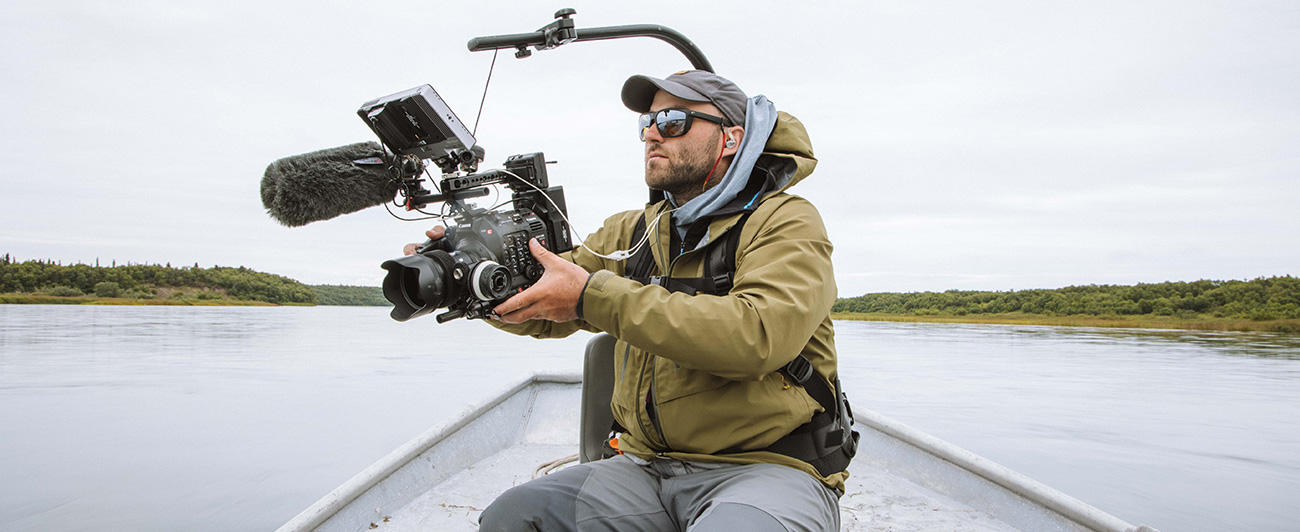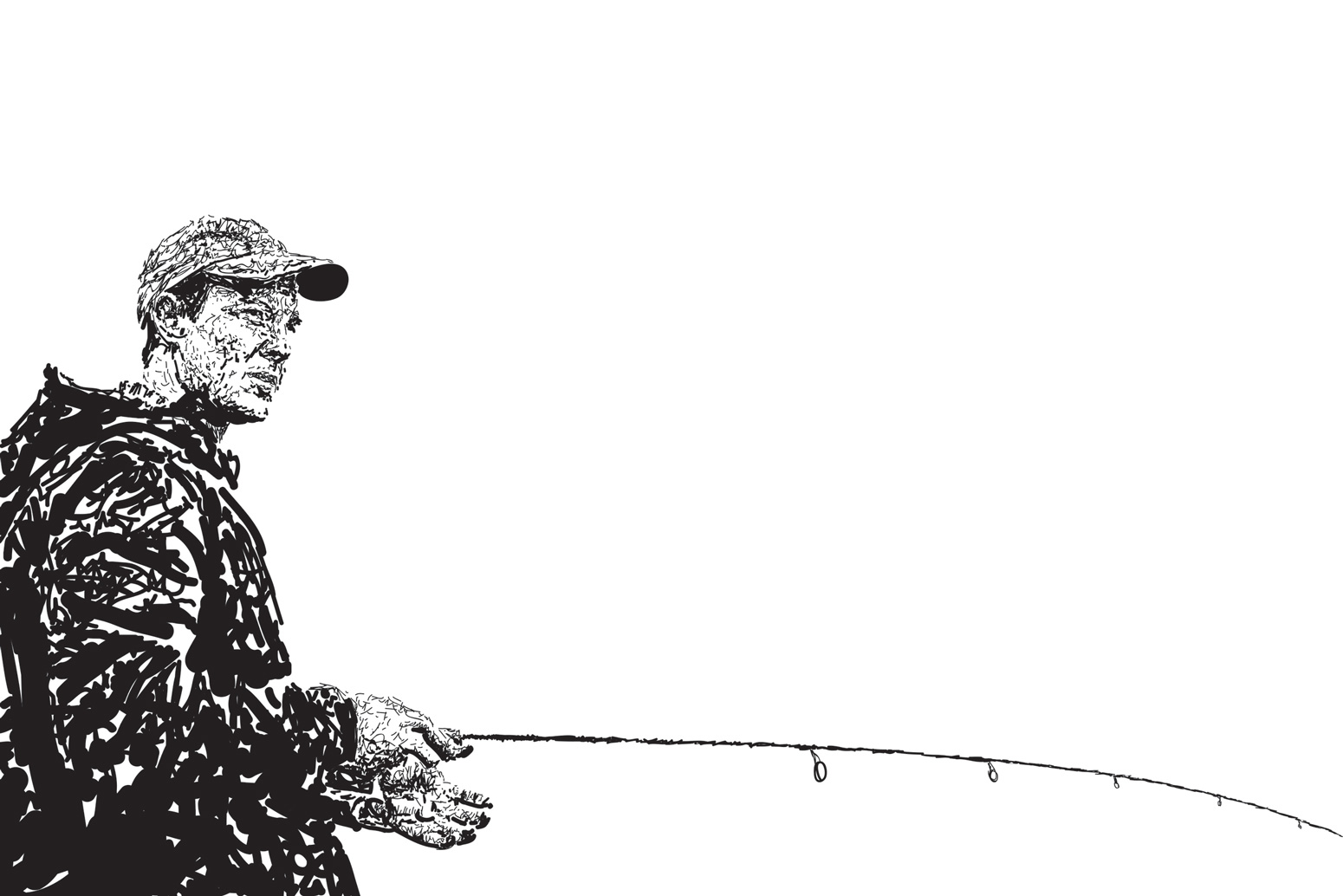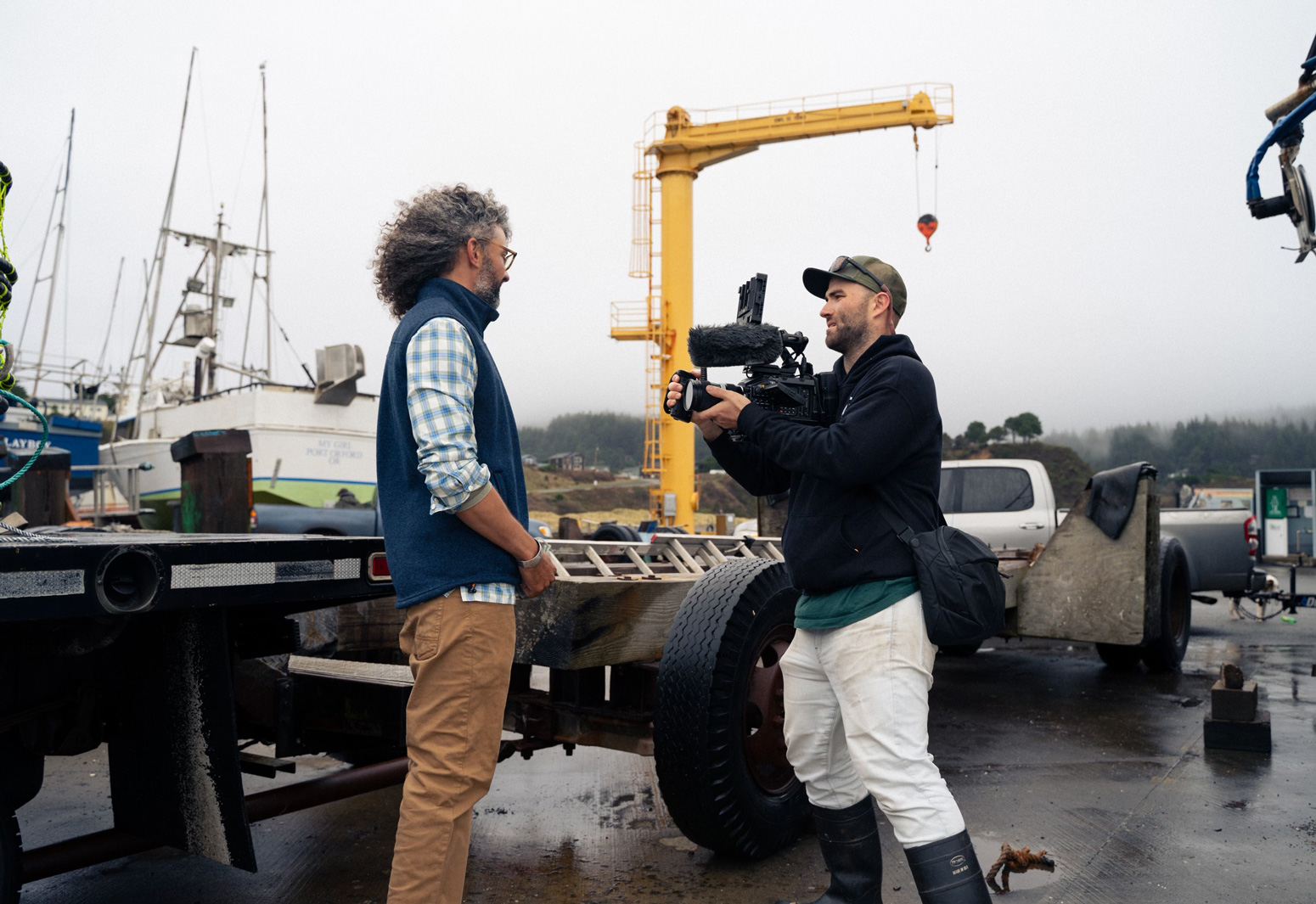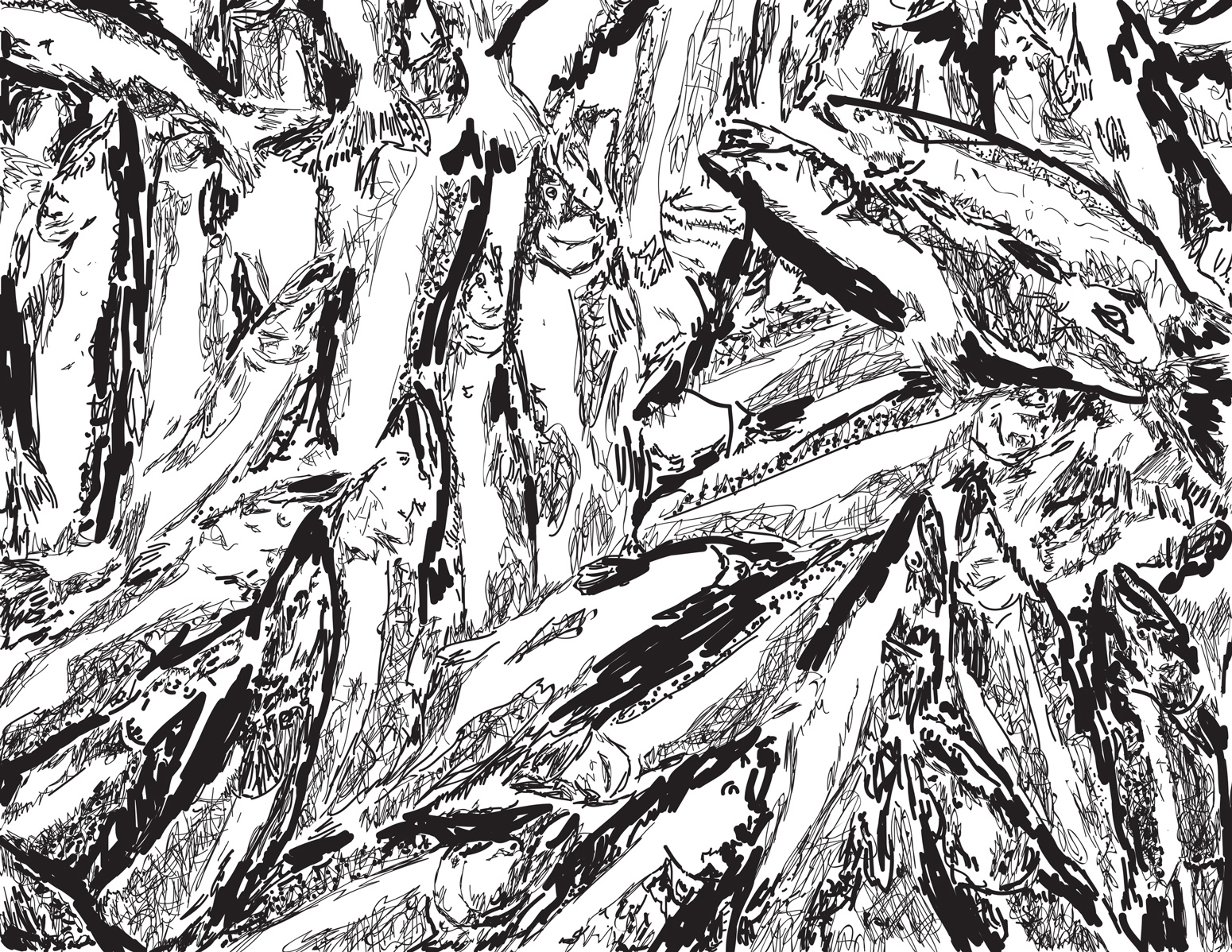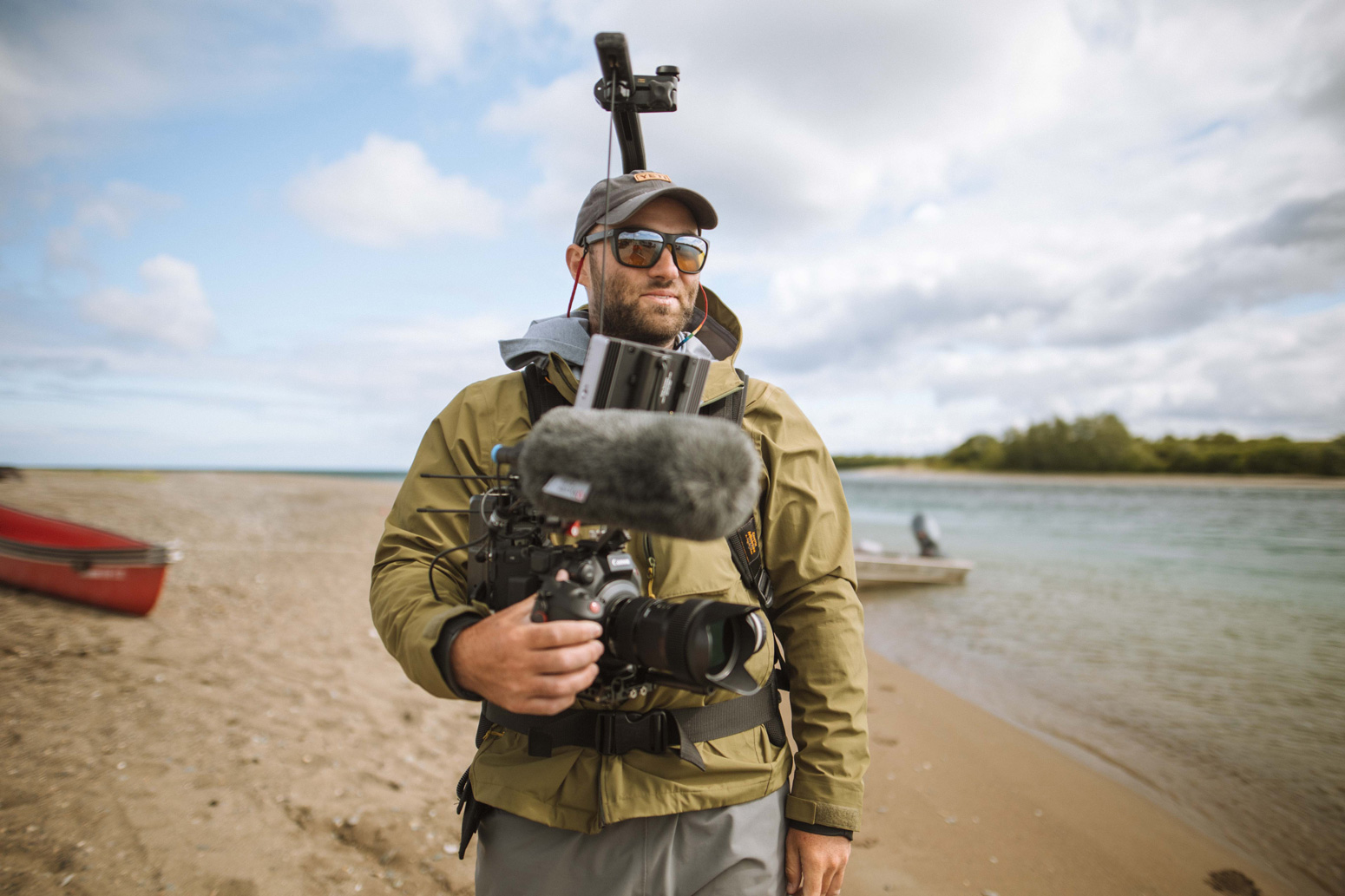Interview
Conflict and Resolution
An Interview with Oliver Sutro
Oliver Sutro wears many hats: he’s a filmmaker, photographer, artist and storyteller. He’s also a flyfisherman, and that’s what makes all the rest of it worthwhile.
Growing up in Los Angeles, he didn’t have the opportunity to learn to fish as a kid, but he daydreamed about adventures and spending time alone in nature. Now, he travels the world documenting other people’s experiences outdoors.
My introduction to Sutro came with his film If I Tell Them, about flyfishing guide and artist James Sampsel, whose gorgeous and vivid paintings are featured in Issue 15.1 of The Flyfish Journal. Like Sampsel’s work, Sutro’s film is full of both poignant beauty and a depth that goes far beyond fishing, while reminding us what we love about standing in rivers.
I got Sutro on the phone while he waited for a flight at the Asheville, NC, airport. We discussed storytelling, the unfiltered artistic minds of children, and why he’d tell fishing stories on film even if he didn’t get paid for it.
above Though he’s primarily a filmmaker and photographer, Sutro’s a passionate visual artist as well. His distinctive drawings often take on the same outdoor subject matter as his other work.
The Flyfish Journal: What are you currently working on?
Oliver Sutro: I’m working on a lot of things. I do a lot of making ads for people in the flyfishing space, people in the outdoor industry, people in outdoor lifestyle, all that sort of stuff. But aside from that, I have a film about a native family in Bristol Bay, called School of Fish. It’s supported by Orvis and it’s on the festival circuit right now. I’m traveling right now shooting some “Top Sportsman” episodes. It’s this comedy series I do for a vodka seltzer brand called All Hands. It’s sort of a spoof TV show where this character makes his way through life being inadequate at various different sporting activities. But yeah, just doing myriad photo and video work.
As a storyteller, what makes a good story?
I think this word gets used a lot, but relatability. There has to be some aspect of true life in a story, and usually relatable aspects are negatives as well as positives. There has to be some sort of conflict and resolution for a story to work, for people to be engaged and for people to be able to relate to a character. A story without conflict, without the low of the conflict, you can’t enjoy the high of a resolve. That’s what I look for in a story, where someone has overcome something or there’s an impasse for a character or a reckoning.
How about an individual image? What makes a good image, be it a photograph or a shot from a film?
There’s this phrase that I follow when I’m shooting and editing images: you want an image to look like it feels. If we’re talking about flyfishing and you’re on a boat at sunset with one of your best friends and there’s not a soul around you, how do you make an image look like it feels? I like that phrase because you can suspend reality in editing to make an image look like it feels.
In the 2000s and 2010s when Photoshop and Lightroom and editing technologies came about, there were a lot of old school photographers saying, “Oh, well, it’s not real photography if you take it and change it in a photo editing software.” I disagree. I think the power that you have in editing images these days is amazing. You can change things and suspend reality and add light or give warmth or subtract warmth to give emotion to an image to make it look how it feels. I think that’s one category of images that I really strive for.
above Oliver Sutro on location shooting his film, If I Tell Them, featuring painter and flyfishing guide, James Sampsel.
What made you want to tell stories about flyfishing?
I think being a professional photographer or a cinematographer is incredibly hard. When you’re considering going into photography or cinematography, you need to really love what you’re doing to make it work, because you’re going to face a point in your career where rejection compounds and essentially your entire life is rejection emails and rejection phone calls. This is a preface to what I’m getting at, but when you’re getting into this industry, you need to prepare yourself for a lot of rejection. Taking photos or making videos of something you love helps you persevere through that hardship.
A lot of people will give photography or cinematography a shot and they’ll give up just shy of achieving it as a career. The reality of the situation is when you start off, you don’t get paid. No one wants to give you money to tell stories when you’re new and have no portfolio. So, I think one of the reasons my career worked out is that I chose flyfishing as something that I was already passionate about, something that I would seek to take photos of and explore even if I didn’t get paid.
Your film, If I Tell Them, profiles James Sampsel. What about James’ story made you want to make that film?
I had actually worked with other people in the flyfishing industry that struggled with similar problems, whether it was depression, being diagnosed bipolar, and having manic depressive episodes. This was early in my career when I’d be traveling around with people. I thought, wow, this is something that sometimes you only talk about when you’ve been traveling with someone or on the road with someone for weeks at a time. Early on, I really wanted to make a film but finding the right person to want to tell that part of their life is really tough. A lot of people that I had met, they weren’t ready to talk about that phase of their life.
I met James because we fish in similar areas of the Oregon coast. I saw his paintings. I was like, wow, this guy’s a really talented artist. I saw that he had done a podcast about his manic depressive episode and his path to recovery. I thought, well here’s someone who is talking about it openly, and this is a story that I could tell. I went fishing with James for a day with a camera and talked with him and pitched my idea, and he was fully on board to do a film.
You also do some really cool drawings. Talk about your art a bit. How would you describe your style, and what are you trying to accomplish with it?
I think my ethos in art is to try and remove as many barriers as you can to do art uninterrupted and unjudged. Try and make things that you think are interesting and try and remove all judgment. I love children’s art, kid art. When you look at it, it’s so alien and weird, and the things they decide to do are so unjudged. No one’s telling a kindergartener or first grader, “oh, you shouldn’t use that color.” And if they are, they’re an evil teacher. But I love how the art that kids make is just totally free.
Developing style is trying to make sure that your process is unadulterated. That no one is telling you how to do something. I think that’s how you can develop style. At the end of the day, style is the thing that sets you apart from other people and makes you interesting. The great thing about it is style is non-competitive in so many ways.
What does your future look like? What are you hoping to accomplish in the next few years?
I’m lucky that right now I have a great career doing something that I love to do. I get paid to go travel, and even if it’s making ads, I’m so happy to be able to shoot on cameras and edit and direct and create visual art. 16- or 18-year-old me would be just absolutely thrilled that I’m doing what I’m doing now.
Having said that, as you grow older, your perspectives on what you’re doing change, and I think it’s healthy to want to do other things or adapt your career to suit what you want to do in five years. I think a lot of that in any career is the balance of doing something for money or doing something because you think it matters. I think there are a lot of stories that I want to invest time and money into that I know right now I won’t be paid for.
So, for me moving forward, it’s about allocating time toward things that I find important. If I step back, that’s what I started doing in the very beginning. You have to make the work you want to do five years from now. It’s sort of a chicken and egg scenario. You need the portfolio to do the work you want to do. That’s what I’m looking to do in the future. Telling fringe stories and spending as much time exploring as I can afford, really.
